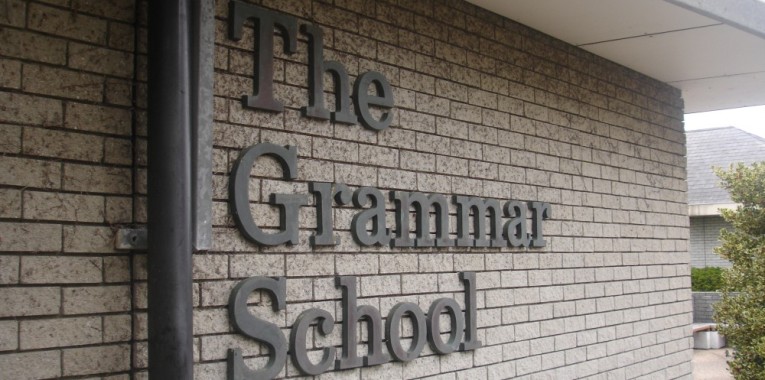There is waste happening all around us – waste of food, waste of money, waste of resources. There is however a deeply saddening waste which is happening under all of our noses. It’s the waste of human talent – hundreds of thousands of young people in our country who do not fulfil their full potential. I’m talking about the so-called “less able” who are not given high expectations, the “more able” who are not challenged further and the cosy middle who are mollycoddled and not stretched beyond their comfort zone.
What are your thoughts on grammar schools? An effective motor to engineer social mobility or a mighty fence keeping the poor immobile? There are very few debates in education which are as divisive as the one about the existence of grammar schools, in particular their role in enabling social mobility.
Social mobility has flat lined and is now rapidly becoming a relic of the successes of the 1960s and 1970s, a time when grammar schools flourished but were subsequently closed by successive governments under the guise of ‘comprehensive’ education for all. Consequently, the very top positions of society in a variety of fields (law, media, business, politics, medicine, and even sports) are now dominated more than ever by 7% of school children – men and women who had the privilege to obtain a private education and not by those educated by the state. This is even happening in sports – it would surprise you to know that over half of our gold medallists at the 2012 Olympics share this background. The wilful destruction of grammar schools contributed to this, a haven which provided unthinkable opportunities to young men and women who could not afford a private education has been decimated for political gain.
The few remaining grammar schools which survived the bludgeoning of the last 50 years hardly get the engine of social mobility ignited let alone get the car moving. Their consequent rarity due to myopic decisions of the past has produced another wing of selection by wealth and money and not by academic ability as before. Sharp-elbowed middle class parents push their way into what remains of the grammar school system by exercising financial might over their poorer counterparts. They move into the local catchment areas of grammar schools which cripples its intended recipient the more in three ways – they force up house prices in the local area by a function of demand, they use money to buy private tuition for the 11-plus examination, and they increase their chances of entry as selection after examination is prioritised by proximity to the school. They recognise that their children will thrive in these grammar schools and are willing to pull all the stops to make it happen and we cannot blame them.
Within these debates, some will say that they are only interested in ‘good schools’ and that the type does not matter but it can be argued that emphasis must be placed on grammar schools. Their original purpose is what distinguishes them from others. They stood as social elevators lifting young men and women from diverse backgrounds whose families did not have the financial resources to shelter them from the chaos of other types of schools or to pay for private. Others will proudly declare that they went to a comprehensive school and turned out well hence the need for grammar schools is null and void but it can be suggested that selection by money for the topmost of such schools is at work most of the time (houses and tuition). The bog-standard comprehensive is oftentimes not the alma mater.
Now, of course the grammar school system had its flaws, all systems do. The main one here being the fact that important life decisions hinged on one high-stakes examination taken at the age of 11 (the 11-plus), which if failed relegated children to what was considered a second-class, inferior education (secondary moderns and technical colleges) and therefore worse outcomes in life. This can be improved by entry to a grammar school at various ages after 11. If something is wrong with the system, does it not make sense to fix the bad part and not dismantle the working part? Before the 1960s, the exam used to include questions about the role of servants in the house or classical composers and therefore were easier for more well-off children to answer and harder for those of poorer or less educated backgrounds. This led to a redesign in the 1960s to ensure it selected based on academic ability, a step forward so spitefully reversed by the wanton destruction that would follow from that decade. Did we have to throw away the baby with the bathwater?
The comprehensive school system in its current form has reduced expectations and therefore denied so many bright children from poorer backgrounds the opportunity to reach their full potential. Engineers of the system indirectly admit that selection by ability works by fiercely encouraging ‘setting’ where ability is used to group children for each subject the child has. Calling the comprehensive school system for photocopying grammar school tactics will not win the argument alone though.
In the 1950s and 60s, pupils of grammar schools and direct grant schools marched into Oxford and Cambridge. According to the Franks Report in the late 1960s, more than 60% of undergraduates at Oxford came from state schools; a figure which after comprehensivisation dived and has only started to climb again thanks to extraordinary measures, concessions and quotas forcing Oxford to take them. In the days of grammar schools, they got in there in their own right because they were well educated state school students.
The most defining argument in favour of grammar schools is the following profound fact. There are only 164 grammar schools left in the UK and over 3500 comprehensives; yet in 2006, those 164 grammar schools produced over 50% of the A grades (including what we would now call A* grades) at A-Level in the top subjects desired across the entire world. “That’s because of selection and creaming of the top!” opponents would cry; but is that credible? Over 3500 schools which contain the entire mixed-ability range still cannot match what only 164 schools can do? 118 of 152 local education authorities do not have any grammar schools at all and yet we should believe that mass “creaming” is happening? What is happening to all the children attending comprehensives?
There is no silver bullet to restore social mobility to its glory days in Britain but an important cylinder for the engine is academic selective education on a national scale or expansion of current grammar schools – choice for parents and pupils. We as a nation desperately need it to find hard-working young people and provide them with the fertile ground to flourish and be the very best they can be. We need to restart a mission – a mission to lift those of lower ability, challenge those of higher ability and stretch those comfortable with average. This squandering of human potential must stop.
Chidi Amadi, Final Year Medical Student

